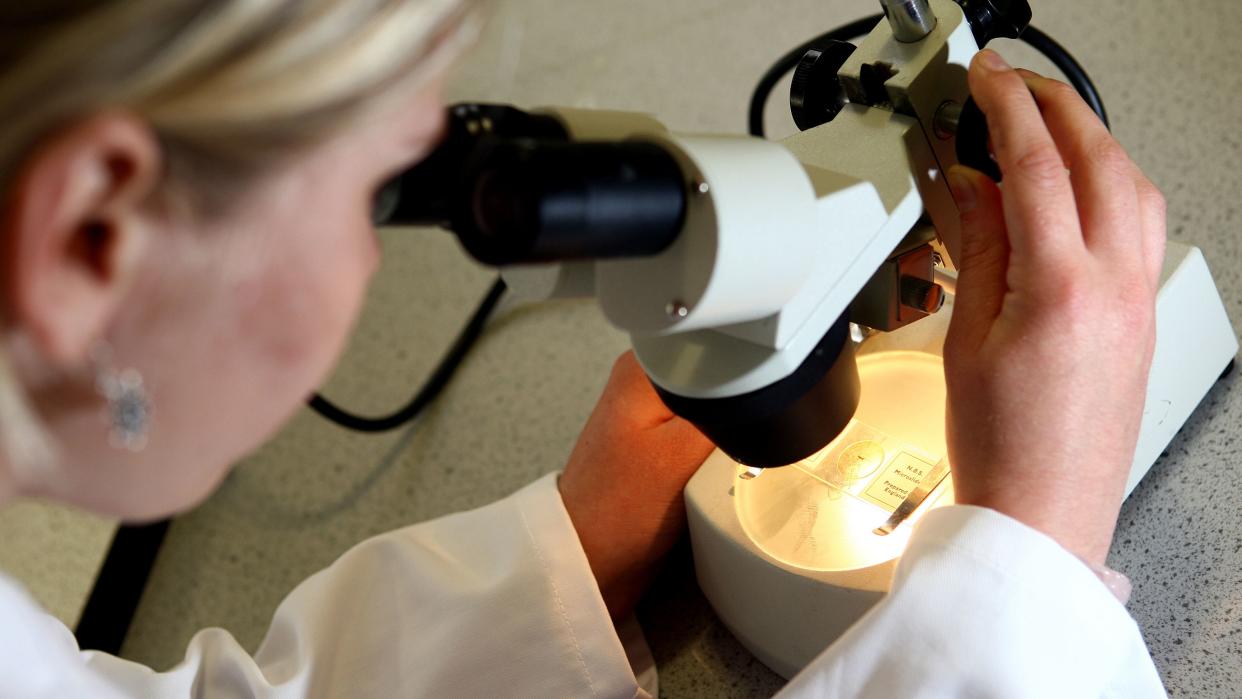Gene-editing offers hope for people with potentially fatal hereditary disorder

A breakthrough gene therapy could offer hope to people with a potentially fatal hereditary condition, new research suggests.
A single treatment of a gene-editing therapy has transformed the lives of a group of patients from the UK, New Zealand and the Netherlands who have hereditary angioedema.
The rare condition is characterised by severe, painful and unpredictable swelling attacks, which can interfere with daily life and can affect breathing.
Now researchers from the Cambridge University Hospitals, University of Auckland, and Amsterdam University Medical Centre, report successfully treating more than 10 patients using the gene-editing tool known as Crispr/Cas9, for which its inventors were awarded the Nobel Prize in Chemistry in 2020.
Dr Padmalal Gurugama, consultant in clinical immunology and allergy at Cambridge University Hospitals, said the therapy has the potential to significantly improve patients’ lives.
“Hereditary angioedema can cause patients severe swellings and intense pain which can be life-threatening as well as restricting normal activities, such as going to work or school,” he said.
“Because it is often misdiagnosed, many patients undergo unnecessary treatments and invasive procedures.”
Cleveland Firman, from Suffolk, who received the treatment, said: “Since the treatment, I’ve not had a single attack. I’ve had a radical improvement in my physical and mental wellbeing.
“I am very positive about the future. I am now volunteering where I can meet like-minded people. The freedom has opened up my world and improved my self-confidence.”
The 54-year-old added: “The randomness, unpredictability and potential severity of the attacks had made trying to live my life almost impossible.
“I spent my life constantly wondering if my next attack would be severe.
“The swellings are painful and disfiguring.
“I was embarrassed to go out in case of an attack. I’ve been hospitalised with swellings on my neck and throat that have affected my ability to breathe.”
Judy Knox, a patient from New Zealand, said: “Having had the Crispr/Cas9 therapy has been like a medical magic wand – it’s changed my life.”
She added that anyone contemplating the surgery “should go for it”, because “it really works”.
Principal investigator Dr Hilary Longhurst, from Auckland Hospital Te Toku Tumai, and the University of Auckland, New Zealand, said: “It looks as if the single-dose treatment will provide a permanent cure for my hereditary angioedema patients’ very disabling symptoms.
“Plus, of course, there is huge potential for development of similar Crispr/Cas9 treatments for other genetic disorders.”
It is estimated that one in 50,000 people across the world have hereditary angioedema; however, because it is rare, it is often not correctly diagnosed.
In the phase one study, researchers found no serious or lasting side-effects from the single infusion – medication being given directly into the bloodstream – which took place over two to four hours under clinical supervision from late 2021 and onwards.
The therapy, called NTLA-2002, targets the KLKB1 gene, which is responsible for producing a protein called plasma prekallikrein.
By editing this gene, the therapy reduces the levels of the protein, effectively preventing angioedema (swelling) attacks, the study suggests.
The trial, published in the New England Journal of Medicine, reports a reduction in the protein of up to 95%, as well as a 95% reduction, on average, in swelling attacks across all patients.
The patients from the initial study will be followed up for a further 15 years to continue to assess long-term safety and effectiveness of the therapy, and larger clinical trials are planned.
Dr Danny Cohn, from the department of vascular medicine at the Amsterdam University Medical Centre, said: “We’ve never been closer to the ultimate treatment goal of normalising hereditary angioedema patients’ lives and offering total control of the disease.”
The studies have been funded by US company Intellia Therapeutics, which chose New Zealand to lead the research as, at that time – late 2021 – it had relatively fewer Covid-19 cases than other countries.


